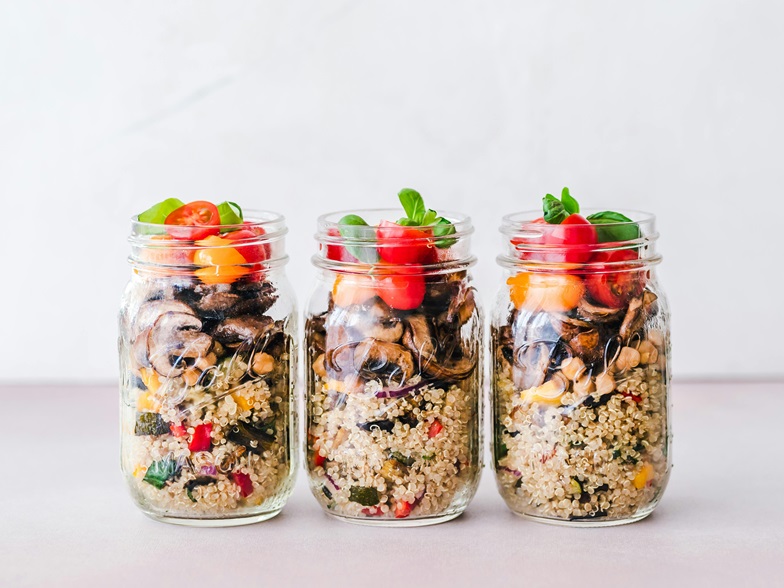As we explore the intricacies of the human body, let’s take a look at the impact of nutrition on the digestive health.
The digestive system is a group of connected organs that work together to transform the food that you eat into nutrients that your body needs to function. It comprises the digestive tract (mouth, throat, oesophagus, stomach, small intestine, large intestine, rectum, and anus) and the biliary system (pancreas, liver, and gallbladder).
According to World Gastroenterology Organisation (WGO), a healthy gut can be defined as a state of physical and mental well-being without gastrointestinal symptoms such as flatulence, constipation, bloating, heartburn, vomiting, nausea, diarrhoea, food intolerance, incontinence, and abdominal pain that require the consultation of a doctor; absence of any disease affecting the gut, and also the absence of risk factors for diseases affecting gut.
The occurrence of digestive health conditionls is increasing rapidly– studies show that more than one third of the global population report experiencing digestive problems, and that one in five adults is suffering from chronic constipation. This is equally true in our clinic set up whereby one in three clients reports to have either one or more of the gastrointestinal symptoms such as acid reflux, bloating and constipation.

A unhealthy gut is not only a source of abdominal discomfort but is strongly linked with one’s overall physical and mental health.
The gut is the first line of defence for the body hence having an unhealthy gut opens up the path to worsening health through different mechanisms- increasing inflammation, increasing risk factors for disease etc. As an example- studies have shown how digestive health conditions such as acid reflux, bloating and constipation can trigger mood changes and vice versa. On the physical health side, an unhealthy gut may increase risk of infections (gastrointestinal and others), trigger certain skin conditions (e.g. psoriasis), affect hormonal balance, cause or trigger migraines to mention a few.
Nutrition plays a key role in maintaining the digestive health hence poor nutrition habits are one of the key factors of the digestive difficulties reported today. Nutrition habits range from what you eat (quality) to how you eat (timing, portions) and there is strong evidence supporting that small nutrition changes can improve your digestive function significantly.
It is also important to note the great role nutrition plays in management of several diseases but most importantly, health conditions related to the digestive system such as Irritable Bowel Syndrome (IBS) and Inflammatory Bowel Disease (IBD) such as colitis and celiac disease as these can be managed to a great extent through appropriate diet and lifestyle changes.
What are some common nutrition habits that may worsen your digestive health?
- Inadequate hydration
- Excessive caffeine intake
- High intake of processed and refined foods; sugary foods and drinks *increases inflammation
- High intake of saturated fats *increases inflammation
- Inadequate intake of fibre
- Inadequate intake of prebiotics and probiotics
- Lack of intention and mindfulness during meal times, meal preparation times
- Lack of an eating schedule (necessary for some)
- Not listening to your body
- Dieting/fad diets
- Excessive alcohol intake
- Lack of exercise
Non nutrition concerns such as stress, poor mental health, smoking etc may also indirectly affect your nutrition habits.
What is the right diet for the gut?
A healthy and well-balanced diet which includes a variety of foods from all the food groups, is recommended to ensure and maintain a healthy digestive system. These food groups include, whole grains, root tubers, protein from both plant and animal sources, fruits, vegetables, dairy, and healthy fats.

Tips for improving digestive health
Overall, aim to lean towards a Mediterranean eating style which comprises of more natural sources of food, encouraging the intake of fruits and vegetables, whole grains, plant proteins, fish, poultry, nuts and seeds; moderate amounts of dairy such as yoghurt and limiting the intake of red meat (especially fatty cuts), processed and refined foods (chapatis, pasta, pastries), sweets, sugary drinks and butter. This eating style promotes the intake of all supportive nutrients and substances such as fibre, prebiotics, probiotics and anti-oxidants and discourages the intake of foods and substances that increase inflammation in the body- all this bringing about good digestive health.
Maintain good hydration using low calorie (no added sugar, fat) and non caffeinated drinks such as water, coconut water, infused water, herbal tea, decaffeinated tea/coffee, vegetable juices etc. Standard recommendation is 1.5- 2litres but this may vary due to many factors. One way to ensure sufficient hydration is to check the colour of your urine- pale yellow to no colour is desired.

Consume caffeine in moderation (1-2cups/day) and avoid strong caffeinated drinks on an empty stomach if facing digestion difficulties such as acid reflux, bloating.
Overall, be mindful and intentional while eating, with full awareness and presence. This helps to chew better, avoid overeating and generally helps in paying more attention to the quality of nutrition.
Avoid diets. Dieting practices/ fad diets are a growing attraction in todays world where obesity and diseases are on the rise. The attraction is mostly surrounded by how fast and effective these methods can be however, very few offer SUSTAINABLE solutions. It is also important to note that with digestive health- many of the nutrition claims and suggestions made may not always have a scientific background hence the effectiveness can be questioned. The main success comes from being able to address the root cause of the problem and accordingly making changes to that.
Stay active. Exercise aids digestion and improves overall health.
Stress management through different technique such as yoga, meditation, and deep breathing.

If you are currently suffering from any of the digestive difficulties, here are a few steps on how you can get started
- Write a food and symptom diary- noting down the foods consumed, the timings, symptoms before and after meals etc. This will help with becoming aware of some of your nutrition habits that may be a trigger to your symptoms.
- Reflect on the dietary intake recorded and assess your nutrition quality- refer to the suggestions made above (fibre, prebiotics, probiotics).
- For foods that can be addictive such as sugar, coffee, tea- reduce intake gradually and allow time for your taste buds to adjust.
- Start by making small changes/swaps in your diet and continue to observe- the goal is to make sustainable changes.
- Assess your hydration status as well as the colour of your urine- see if you need to make any changes to that.
- Assess your caffeine and alcohol intake- start making small changes if required to avoid withdrawal symptoms.
- Exercise intentionally.
- Observe if stress is a concern and intentionally aim to reduce the same.
If you have any questions, contact Nutrition by NW for more information on nutrition and digestive health.

